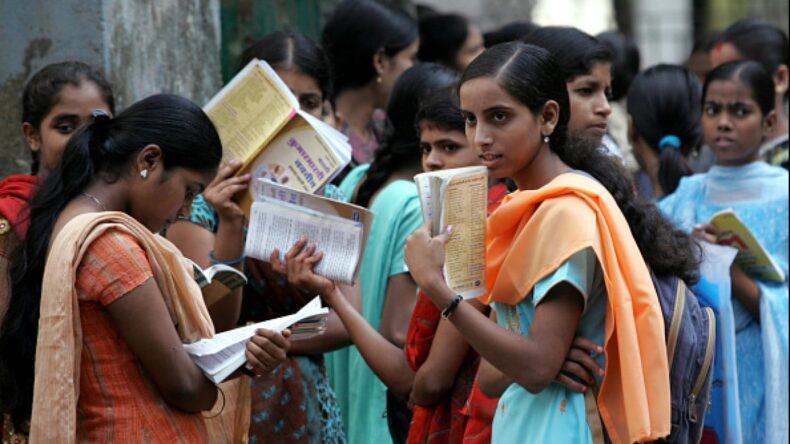Major deletions from the NCERT syllabus, have historians from leading universities condemning the act. The portions that have been dropped include the chapters relating to the Mughal Era, the Gujarat Communal Riots of 2002, the Naxalite Movement, and mentions of Dalit Writers.
Table of Contents

Recent omission of major parts from History books
Certain changes were made in the History books issued by NCERT recently, which included complete omissions of full chapters relating to the history of Mughal Courts, certain references to the Gujarat communal riots of 2002, the Naxalite movement, and mention of Dalit Writers.
Historians condemn the changes
Around 250 historians including Romila Thapar and Jayati Ghosh from several universities both from India and abroad, have raised dissent against these changes. The Universities include Princeton University, Jadavpur University, Indira Gandhi National Open University, Delhi University, University of Hyderabad, and Columbia University. A public statement has been issued by these historians against these changes made in the textbooks by the National Council of Educational Research and Training (NCERT).
The Public statement issued by these historians on Friday said that the recent decision of the NCERT to omit entire chapters from the History textbooks issued for Class 12, as well as from other classes, and to delete certain statements from other such textbooks was a matter of deep concern not only for academicians but also for the masses. The excuse that the pandemic-cum-lockdown has urged the NCERT to lighten the load of the syllabi, seems unsubstantiated. Earlier, the commission had also dropped the chapter on the fight for equality from the social science curriculum for classes 6 to 12.
Deletions have been made the ‘norm’

The statement further lays down the argument that the new and changed editions of these NCERT books have simply made the omissions a norm even after the nation has come out of the grasp of pandemic-induced lockdowns, and most of the schools have been reset to normalcy after a long period of the ‘online mode’.
Even in these conditions, the commission has taken the guise of pandemic-induced changes to drop an entire chapter on the Mughals has been removed from the Part II of the History textbook for Class 12, while additionally, two chapters on modern Indian history have been omitted from Part III of the History Textbook.
No conslutation with original drafters
There has been no consultations, or even attempts to hold consultations with the teams that had prepared the textbooks, which had members from the fields of history such as teachers, historians and expert members of the NCERT itself.
The earlier curriculum was prepared through a series of deliberations amongst the members, however, it was changed based on undisclosed causalities. This discussion system is beneficial and essential in terms of content and pedagogy, ensuring organic unity and a graded development in understanding from the Middle School Level to the Senior School.
The statement also adds that the Mughals ruled several parts of the Indian Subcontinent for a historically substantial duration of time. Thus, that part is not severable from Indian History without leaving large information gaps.
These changes reek of communal undertones: Historians
The statement went on to point out that the Chapter on Mughal history has been deleted while the chapter on the Vijayanagara Empire has been retained. This exclusion, in their opinion, exposes the wider communal undertones, based on an inaccurate assumption about India’s past-that the religion of the rulers was the dominant religion at the time. The Sections about the 2002 Gujarat Riots and the subsequent National Human Rights Commission report have been removed. Further, any mentions of a ‘Hindu Extremist’ have been dropped.
This leads to a deeply problematic idea of a ‘Hindu Era’ or a ‘Muslim Era’. Removal of entire eras, the statement said, would not only give rise to misunderstandings, but also deepen the divides of casteism and communalism.
Demand for withdrawal of recent changes
The historians expressed that they were appalled by these changes and that they need to be taken back. The decision of the NCERT was termed as ‘divisive’. The statement pleads that the act manifests opposition to constitutional ethos and the composite culture of the Indian Subcontinent, and must be withdrawn.
See the entire statement at: https://www.sacw.net/article15166.html
Read about books that are banned in India and why: https://tdznkwjt9mxt6p1p8657.cleaver.live/top-books-banned-in-india/












